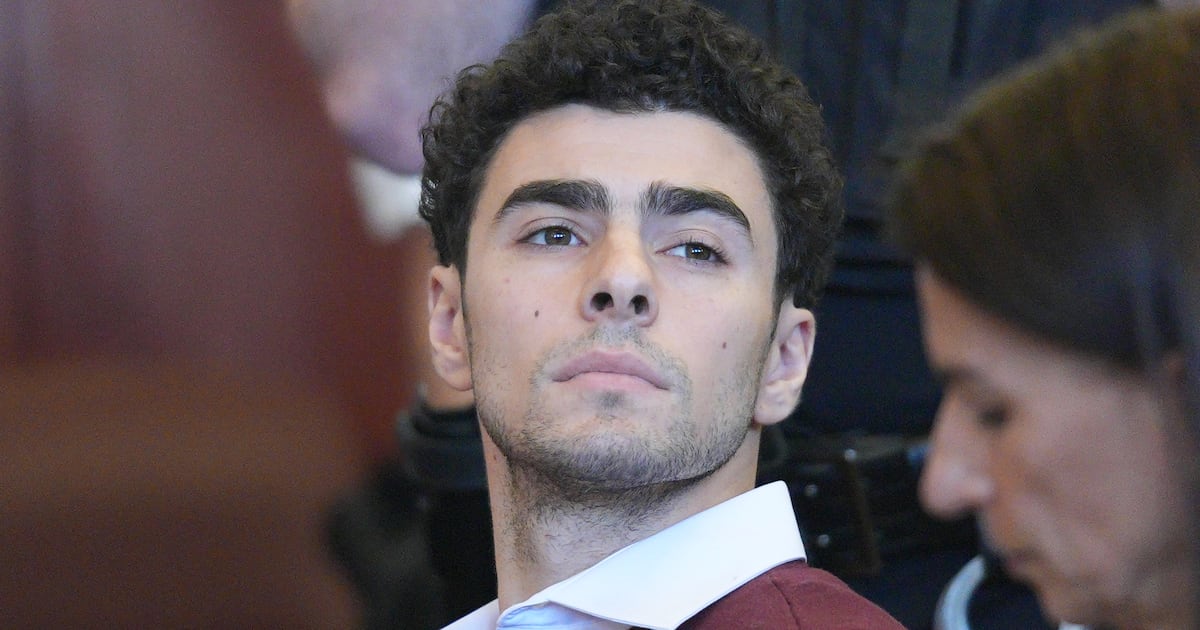Talk of pardons is in the air, and well it should be. Paul Manafort is facing decades in jail if he doesn’t cooperate with special counsel Robert Mueller. So is his deputy, Rick Gates. Since their indictments were handed down, President Trump has shown unusual restraint given his penchant for lashing out. Surely, he and his lawyers are studying their options.
“The idea of a pre-trial pardon is not something that’s atypical,” says Jacob Frenkel, a white-collar lawyer at Dickinson Wright who worked in the Office of the Independent Counsel during the Clinton years. Frenkel speculates that Mueller may even be “baiting” Trump to pardon Manafort in an effort to obstruct the investigation, which could then become a basis for impeachment proceedings.
There’s a history, though, of such presidential pardons. George H.W. Bush pardoned Caspar Weinberger, Secretary of Defense during the Reagan administration, and five other officials, including Reagan’s national security adviser Robert McFarlane, former assistant secretary of state Elliott Abrams, and three former CIA officials, Clair George, Alan Fiers Jr. and Duane “Dewey” Clarridge.
It was widely reported at the time that the pardons, issued on Christmas Eve of 1992, after Bush had lost his bid for reelection, were done to prevent Weinberger’s case from going to trial and potentially exposing Bush’s role in the long running Iran-Contra investigation. “It was time for the country to move on,” Bush said in a written statement accompanying the pardons.
Independent counsel Lawrence E. Walsh angrily declared that “the Iran-Contra cover-up, which has continued for more than six years, has now been completed.”
Bush weathered the storm. He was leaving office, a defeated president ducking a scandal that had run out of steam. Walsh vowed to continue his investigation, claiming that Bush had illegally withheld documents, including a personal diary, but the results of the election ended the probe.
If Trump tries to pardon people in the middle of his first term, though, it could well be self-defeating, says Neal Katyal, a partner at Hogan Lovells and former acting Solicitor General of the United States. His pardon power does not extend to state crimes, and Mueller is working with state prosecutors. Anybody Trump pardons forfeits their right to take the Fifth, which means they would be forced to tell the truth in any future proceedings involving Trump and his family members and allies or face jail time for contempt of court .
Viewed historically, Katyal said in an email, the indictment of Manafort coupled with the Papadopoulos guilty plea “makes this case look like one of the more sensitive and explosive presidential scandals. The idea that the President’s campaign was approached by our enemy and did nothing to report it to the FBI is a judgment error of epic proportions.”
Three criminal indictments with likely more to come in the first year of the Trump presidency is record-setting. No recent president has been in such hot water so fast. The closest analogy is the Whitewater investigation, launched in President Clinton’s first year, which did not yield any criminal indictments and morphed into the Lewinsky scandal which led to Clinton’s impeachment years later, after he had been reelected.
A Democratic-controlled Senate failed to convict Clinton on impeachment charges brought by a Republican controlled House, and the prurient misadventure led by independent counsel Kenneth Starr went down in flames. “The number of indictments is a function of the quality of evidence, not a competition for historical places,” says Frenkel. “Bob Mueller has a reputation dating back to his days as a U.S. attorney for a very high confidence level in the quality of the evidence.”
“Just the mere fact that conduct is politically offensive to some and may be unseemly and inappropriate to an even broader audience doesn’t make that conduct criminal. Before there can be criminality, there has to be criminal intent or deliberate ignorance,” says Frenkel, who recalls wading through a phalanx of reporters outside the DC federal court in the nineties on what was dubbed “Monica Beach.”
A Wall Street Journal editorial has called on Mueller to resign, but so far at least the probe into the Trump campaign’s possible collusion with Russia is widely seen as legitimate and not partisan. Richard Ben-Veniste, a Watergate special prosecutor, told the Daily Beast that Mueller is “the Obi-Wan Kenobi of all of this. He’s the most likely to get to the bottom of this.”
Trump likes to win, and he’s off to a good head start if he’s to overtake previous presidents when it comes to executive branch criminal activities. There were 76 criminal indictments brought during the Nixon administration; 55 yielded convictions, and more than a dozen served time in prison. The Watergate scandal forced President Nixon to resign.
An in depth analysis with charts compiled by the Daily Kos in January, and cast as “A warning for Trump appointees,” found the Reagan administration was next with 26 indictments that yielded 16 criminal convictions, the bulk of them related to the Iran-Contra scandal and trading arms for hostages. The 16 criminal indictments during George W. Bush’s eight years produced 16 convictions, including for Vice President Cheney’s confidante, Lewis “Scooter” Libby, for perjury and obstruction of justice in the unmasking of CIA covert agent Valerie Plame.
“The concern you have as the lawyer for an ultimate target, whoever that is, Trump’s family, his confidantes, and I represent targets all the time,” says Frenkel. “The greatest challenge to you as a lawyer is to have as much information as you possibly can to be able to assess culpability and read any change in the winds – and your greatest fear is people being untruthful to protect themselves.”
If you lie to the FBI, you go to jail. That is the lesson of the last eight administrations. It won’t be any different for Trump.






